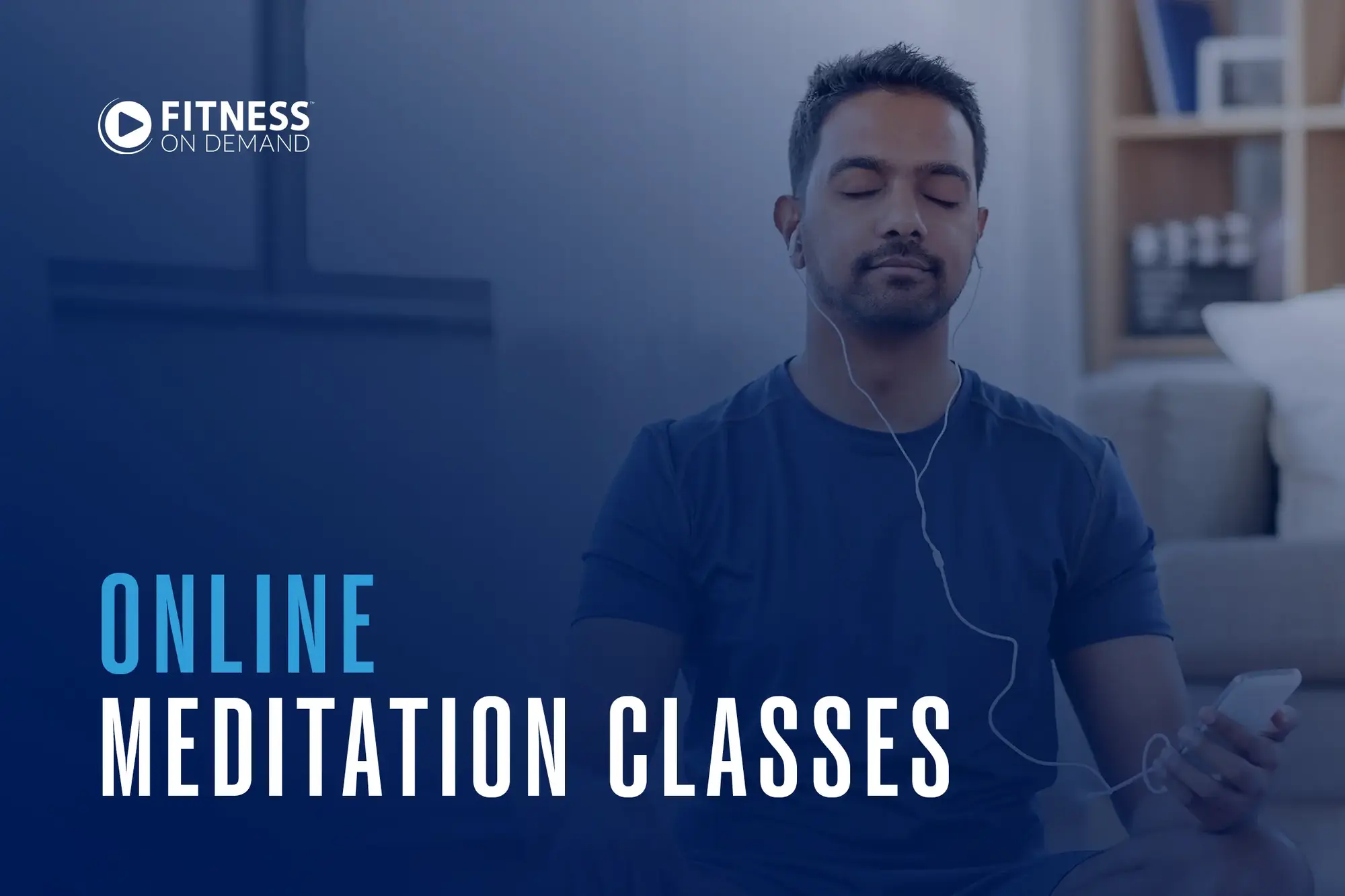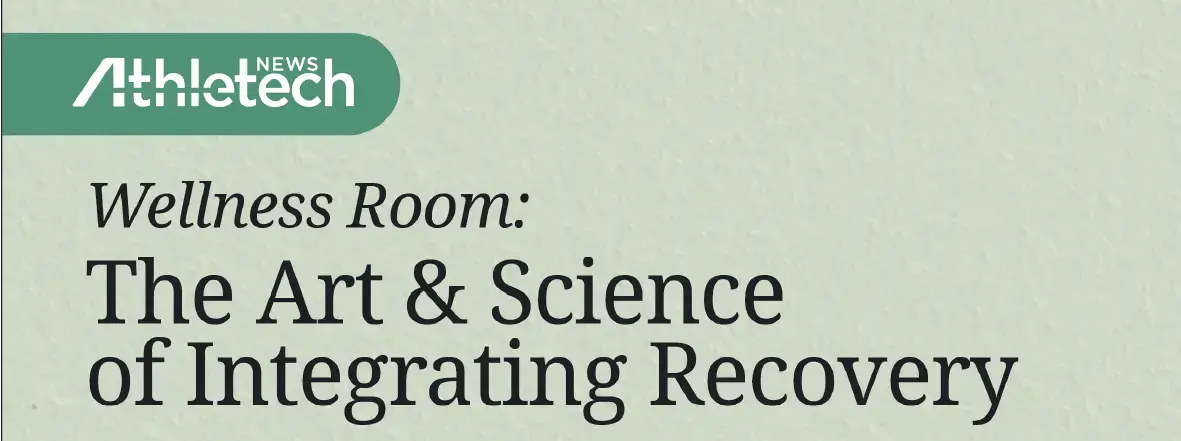Today's busy professionals are in a tough spot. Everyone's talking about self-care, and they want in on it — but who has the time for it?

Online meditation classes can be a game-changer. With just an internet connection, anyone can jump into an on-demand digital class and practice mindfulness anytime, anywhere — whether that's in the break room post-meeting or in the living room after putting the kids to bed.

Step Inside the Wellness Room
The Role of Meditation in Modern Wellness
Americans are more stressed than ever — and it's getting worse every year. According to a 2024 poll from the American Psychiatric Association (APA), 43% of adults reported feeling more stressed than they did in 2023. And that year, they felt more stressed than they did in 2022.
All that stress needs to be channeled somewhere, and this is where meditation can be a powerful tool. It guides a person's attention back to the present moment and away from daily stressors.
As people become more aware of the value of stress management, the demand for accessible meditation and mental wellness tools is increasing. Research by McKinsey & Company found that sign-ups for digital meditation tools rose by 70% over 18 months.
With online meditation classes, people can build a practice without the pressure of having to commit to a schedule or teach themselves.
Benefits of Online Meditation Classes
An online meditation and mindfulness course allows people to ease their way into the practice, at their own pace, focusing on what matters most to them. Advantages include:
Reducing stress and anxiety
In online meditation classes for anxiety, people learn to acknowledge their worries without fixating on them. Students practice letting go of anxious thoughts and focusing on the present moment.
Improving focus, sleep, and resilience
Meditation skills can empower individuals to free themselves from the cycle of worry, sleep better, and fully engage in their work and personal lives.
Integrating holistic health and fitness
When offered as part of a general fitness program, digital meditation classes help users integrate mental wellness with exercise and nutrition.
Just a few minutes of meditation a day can help bring these benefits to life.
Accessibility and Flexibility of Virtual Meditation
Taking the time to attend a traditional meditation class can sometimes bring on even more stress. Virtual classes take away that burden and allow people to meditate when and where they can. That might mean logging in at the gym to cool down, in the office to decompress, or right before bedtime to improve sleep.
The virtual format also makes space for different needs, goals, and experience levels so that every user can feel engaged and motivated. A beginner might start by learning basic meditation techniques a few times weekly, while someone else may commit to daily online meditation classes to deepen their practice.
How Meditation Enhances Recovery Programs
Exercise recovery is one of the biggest trends in fitness. Recovery is a key component in prioritizing overall wellness, and it includes resting both the muscles and the mind.
Forward-thinking fitness programs and centers often offer physical recovery services, such as foam rolling, assisted stretching, and massage. But as people begin to think more about integrated well-being, the demand for mental recovery is also increasing.
Mindfulness meditation fills this gap. It adds an emotional and mental component to the total-body recovery concept, allowing fitness enthusiasts to shift from an intense focus to a more relaxed awareness. As activities like yoga and stretching help to calm the body, preparing it for the shift back to everyday activity, meditation does the same for the mind. People leave feeling centered mentally and physically, ready to take on the day — or get a good night's sleep.
Because exercise recovery is still a developing trend, fitness programs have the opportunity to position themselves as leaders in the space. Offering online meditation is a powerful way to focus on this total-body recovery approach.
Implementing Online Meditation in the Workplace
Meditation classes and programs are also an impactful resource in the workplace, whether your team works remotely or in-office.
In a Wiley Workplace Intelligence survey, 95% of respondents reported experiencing some level of stress, while 36% reported severe stress. A staggering 77% said their stress impacts their ability to communicate, and 72% confessed that it impacts their quality of work.
These numbers reveal the need for employers to start thinking about meditation and mindfulness to improve workplace wellness. Online meditation classes are a convenient and effective solution. Employees can use these resources when and how they need them.
The support of managers and supervisors helps employees understand that taking time to meditate is not only okay but encouraged. Employers can also promote meditation tools and their use by making a few changes in the work setting, such as:
- Creating shared wellness spaces that employees can reserve for meditation
- Adding digital signage that encourages people to "take a meditation moment"
- Providing free acces to fitness apps that include guided meditation and on-demand mindfulness classes
Workplaces can also promote meditation classes by issuing team-wide invites and incentivizing participation. Actions like these make meditation a seamless part of team culture.
The Future of Digital Meditation and Wellness
As people experience the benefits of whole-person well-being, online programs will continue to evolve. Today's consumers expect personalization, with 71% of people preferring brands that learn their shopping habits. This expectation has begun to bleed over into fitness, and the industry is responding.
One evolving trend is hybrid fitness programs, which give people access to both in-person and digital offerings. For example, the Fitness On Demand Flex app offers over 1,200 on-demand classes and videos, as well as an extensive library of well-being content. Customizable for any brand, it integrates with hybrid or virtual programs, or serves as a stand-alone resource providing motivation and engagement for any community.
Offerings like these are ideal for corporate settings. In a recent Gallup poll, better personal well-being stood out as the most critical factor for employees in choosing a new job, with 59% of respondents rating it as "very important."
Employers are stepping up with on-site and virtual well-being programs, using tools like the Flex app to promote work-life balance and to show they care about their employees' well-being. Integrated meditation apps give participants an effective and evidence-based tool to reduce their stress levels and feel more focused, improving their health and productivity.
Frequently Asked Questions About Online Meditation Classes
What Questions Should People Ask During Meditation?
Meditation is about learning to be present with yourself, free of demands. Part of this is noting your thoughts as they arise — and they most certainly will. Instead of judging those thoughts or pushing them away, you can ask questions like:
- What am I feeling in my body?
- Can I sit with this?
- Can I bring my mind back to my breath?
- Am I resisting anything right now?
- What name can I give this feeling?
You can ask these questions any time a thought or feeling arises to help bring you back into the moment.
What Is Online Meditation?
Online meditation is an opportunity to participate in classes, guided sessions, or group sittings via the internet. Practitioners can engage in online meditation via apps, websites, or video chat software. Another convenient but less interactive option is to follow along with recorded guided meditations, using mindfulness apps or videos on platforms like YouTube.
What Are the 8 Rules of Meditation?
Meditation and mindfulness instructors have developed many guidelines to help practitioners meditate. Most fall under the umbrella of eight basic rules:
1. Be comfortable: Find a posture that makes you feel relaxed but alert. Relax your shoulders and free your body of tension.
2. Be quiet: Find a place to meditate where you won't be disturbed or feel self-conscious.
3. Focus on the breath: The breath is an intuitive anchor that helps you gently shift away from thoughts.
4. Don't try too hard: Meditation is all about acceptance. Instead of working to clear your mind, let it clear itself as you focus on the breath.
5. Avoid judgment: Notice when your mind wanders and call it back without judgment.
6. Start small: You don't need to start with an hour-long sitting meditation. Instead, try meditating a few minutes at a time or signing up for a beginner class.
7. Be consistent: Daily practice helps to build consistency, even if you can only manage a few minutes.
8. Be patient: Restlessness and unwanted thoughts are normal, especially at first. Trust the process.
How Can People Learn Meditation Online?
The best way to learn meditation online is to join a digital class or participate in a guided session. An experienced instructor can provide guidance and help you avoid frustration.
Fitness On Demand's Approach to Mindful Recovery
With a variety of meditation and wellness sessions available anytime and anywhere, Fitness On Demand makes it easy to practice mindful recovery and stress release. Programs are available 24/7 on our unique Self-Service touchscreen and mobile app.
Schedule a demo today to see the recovery touchscreen in action!

Author
Sean Obregon
Sean Obregon is an impactful Business Development Executive forming meaningful relationships to support enhancing operational and strategic success. He utilizes his industry knowledge and experience to create solutions that align with both the needs and wants of a customer, setting a business up for success.
